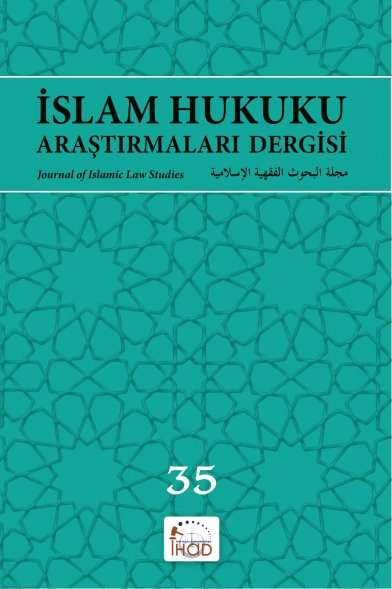Müftülüklere Resmî Nikâh Kıyma Yetkisinin Verilmesi ve İslam Hukuku Açısından Uygulamada Karşılaşılabilecek Muhtemel Problemler
İslam dini açısından da dünyevi ve uhrevi boyutları olan nikâh akdi, neslin devamını meşru olarak sağlayan ve toplum nazarında ehemmiyet arz eden bir sözleşme olduğundan zorunlu olmamakla birlikte genel olarak dini ve hukuki hükümleri bilen kişiler tarafından kıyılmıştır. İslam tarihinde, dört halife döneminden itibaren nikâh kayıt altına alınmıştır. Osmanlıda da nikâh ilk dönemlerden itibaren devletin denetimine tabi tutulup kadılar tarafından veya onların bilgisi dâhilinde yazılı belgeye bağlanmıştır. Tarihi süreç içerisinde bu uygulama yaygınlaştırılarak sürdürülmüş ve 1917 tarihli Osmanlı Hukuk-ı Aile Kararnamesi ile nikâhların tescil edilmesi esası getirilmiştir. Ancak 1926 yılında İsviçre Medeni Kanununun iktibası ile evlilik için belediye kaydı esas alınmış ve imam nikâhının resmi hüviyeti sona ermiştir. Bu kanundan sonra ülkemizde resmi nikâh ile birlikte Müslümanlar bir de imam nikâhı yaptırmaktaydı. Bu da bir ikileme sebep olmaktaydı. Çıkarılan kanun ile müftülüklere de resmi nikâh kıyma yetkisi verilerek bu ikilem ortadan kaldırılmıştır. Müftülüklere verilen bu yetki yerinde ve doğru bir karardır. Ancak müftülükler resmi nikâhı mevcut medeni kanununa göre kıyacaktır. Nikâh akdi açısından mevcut medeni kanununda İslam hukuku ile çelişen hükümler söz konusu olabilmektedir. Bu bağlamda müftülüklerin kıydığı nikâhın dini yönden eksik olması düşünülemez fakat müftülük görevlisi nikâhı mevcut resmi nikâhın şartlarına göre kıyacağından İslam hukuku açısından uygun olmayan durumlarla karşılaşılması söz konusudur. Bu makalemizde, müftülere verilen resmi nikâh kıyma yetkisini tanıyan düzenlemenin İslam hukuku açısından pratikteki bazı sorunlarını ve çözümlerini ele alacağız.
Authorization of the Office of Mufti to Solemnize Civil Marriage and Potential Issues in Islamic Law
From Islamic perspective, the marriage contracts with worldly and otherworldly dimensions produce legitimate offspring and have a valuable place in public opinion, and therefore despite being non-mandatory, those who had command of religious and legal provisions were authorized for solemnization as usual. In Islamic history, the marital agreements had been documented since four caliphate period. And also, in Ottomans marriage has been made under the state supervision and written document was stipulated by the judges (kadi) or with their approval. Within the historic process, this practice had been mainstreamed and maintained, and the marital registration was mandated by the Family Law Decree of the Ottoman State. Later, in 1926 the municipal record was conditioned for getting married following the adaptation of Swiss Civic Code, and hence the official authority of imam marriage was terminated. After this prohibitional law, apart from the civil marriage, Muslims might have committed an additional ceremony, that’s, imam marriage. Naturally, this may cause a dilemma. From now on, the law enacted will equip the muftis with the solemnization authority and eradicate this chaos. This warrant is a pertinent and fair decision. Besides, the muftis will solemnize the civil marriage in compliance with the civil law in force. For contracting marriage, there may occur some contradictory issues between the current civil code and the İslamic jurisprudence. In this context, a marriage contract solemnized by muftis or the ones authorized by them cannot be religiously deficient, but unfortunately in Islamic law, namely it is potential to face some illicit situations according to Islamic practices because the contract will be duly compliant with the current legal marital provisions. In this paper, we will discuss some issues and potential solutions in practice regarding the legislation to designate muftis with the authority to solemnize civil marriage, in accordance with Islamic Law.
Keywords:
Law, Religion, Generation, Marriage, Mufti,
- ISSN: 1304-1045
- Yayın Aralığı: 2
- Başlangıç: 2004
- Yayıncı: Gençleri Evlendirme ve Mehir Vakfı
